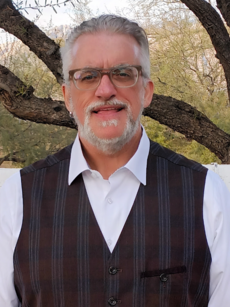
Our task - and the task of all education - is to understand the present world, the world in which we live and make our choices.
(E.F. Schumacher, Small is Beautiful, 1973)
Eddy White joined the University of Arizona in 2011 and served as Assessment Coordinator until 2019. His background, research and expertise in classroom-based assessment has included a range of related publications and presentations. His assessment-focused career has also included promoting assessment literacy, and training educators, both nationally and internationally, in assessment fundamentals and best practices.
Eddy has also been a teacher for more than 30 years, including at universities in Canada and Japan. Since joining the Department of Public & Applied Humanities, he has been engaged in his primary passion for teaching and learning. This has included creating and teaching new courses, such as:
- Car Nation: The Automobile and the American Experience
- Friendship: Life’s Fundamental Bond
- Working: The Rewards and Costs of Employment
- Weird Stuff: How to Think About the Supernatural, the Paranormal, and the Mysterious
- Motorcycle Culture: Free Spirits, Easy Riders, and the Human Experience
(see course descriptions below)
As an educator, a source of much satisfaction for Eddy is bringing such courses to life - and engaging and collaborating with students in the primary educational task (according to Schumacher) of better understanding this present world in which we live and make our choices.
A life-long student of the Humanities (esp. History and Philosophy), Eddy enjoys hiking, bicycling, and the art of Shakespeare and Bob Dylan.

